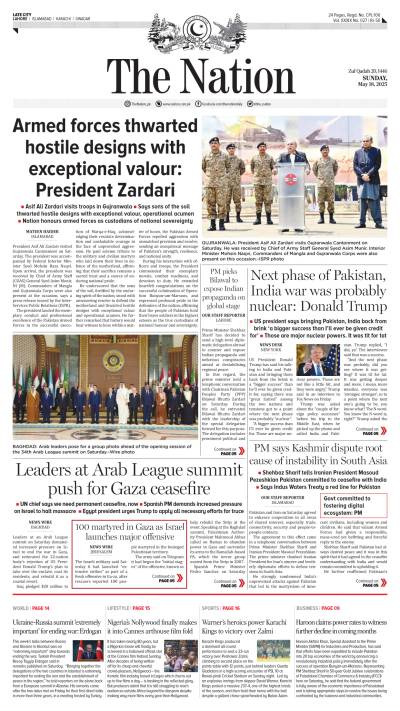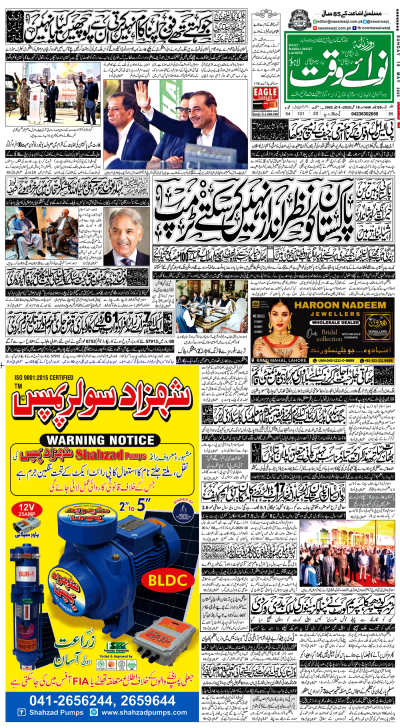islamabad - Members of a dialogue group discussed the contours of a new national narrative, which, once absorbed by the people of Pakistan, could greatly help dispel the space gained by extremists.
They argued that the prevailing national narrative is often sympathetic to extremisms, to the consternation of both state and society.
The dialogue group, comprising of diverse scholars and practitioners, was constituted by Pak Institute for Peace Studies, an Islamabad-based think-tank. Attendees included Dr Khalid Masood, former chairman Council of Islamic Ideology; Barrister Zafarullah Khan, minister of state for law and justice; Inamul Haq, former foreign minister; Dr Qibla Ayaz, former vice-chancellor, Peshawar University, Dr Ishtiaq Ahmad, academic; Dr Farhan Zahid, security expert; Sohail Tajik, and Muhammad Amir Rana, director PIPS; among others.
Starting off the discussion, PIPS’s Director Amir Rana attributed the rise to intolerance and militancy to narrow narratives invoked to justify certain goals. Even now, extremist elements continue to benefit from those narratives, once shaped by the state itself; instead, with time, those narratives have challenged the state. A way to overcome that narrative is to, therefore, shape an inclusive narrative along with a Counter-Violent Extremism (CVE) model.
Scholars, who have been engaged in a two-staged process to shape that model, argued that one of the planks on which the prevailing narrative stands is narrow religious interpretation, thereby helping the extremists too. Participants vigorously debated whether any response – the new CVE model and narrative – should “pivot” around religion too.
The new narrative, it was shared, had religious response as one of the major planks, with other areas too incorporated.
Thus, to reject their appeal, it was important to review afresh the religious construction of political terms. Rana argued that it is important to engage religious scholars to counter the extremist propaganda.
One of the other themes of the counter-narrative was acceptance of diversity, which should be appreciated as asset of Pakistan. The narrative of the extremists, the group agreed, was dangerous for social diversity, which already suffers from inequality. Today, the day-to-day conversation is adopting sectarian undertones, they warned. They called for a more pluralistic response. One member suggested that “cultural diversity should be appreciated and made part of curriculum in both formal and informal schooling.”
Discussants asked for setting the Constitution as guiding tool for both state and society. The new narrative in Pakistani society, one argued, the related “language and idiom should come out from the Constitution,” one reminded.
Members also asked national and provincial government to address issues like class divide, problems in the justice system, poor governance, unequal distribution of resources, and population increase, and above all, to evaluate regional strategic interests.
Meanwhile, PIPS shared basic themes of the Counter-Violent Extremism (CVE) model, including the formation of a nation-wide dialogue forum, inclusive of religious scholars with diverse thoughts to discuss critical issues; shaping up a reintegration model of extremists, which could include tactical engagement with extremists to stop violence, their political and ideological reintegration, as well as long-term de-radicalisation programme; coming up with a rehabilitation strategy of detainees.





